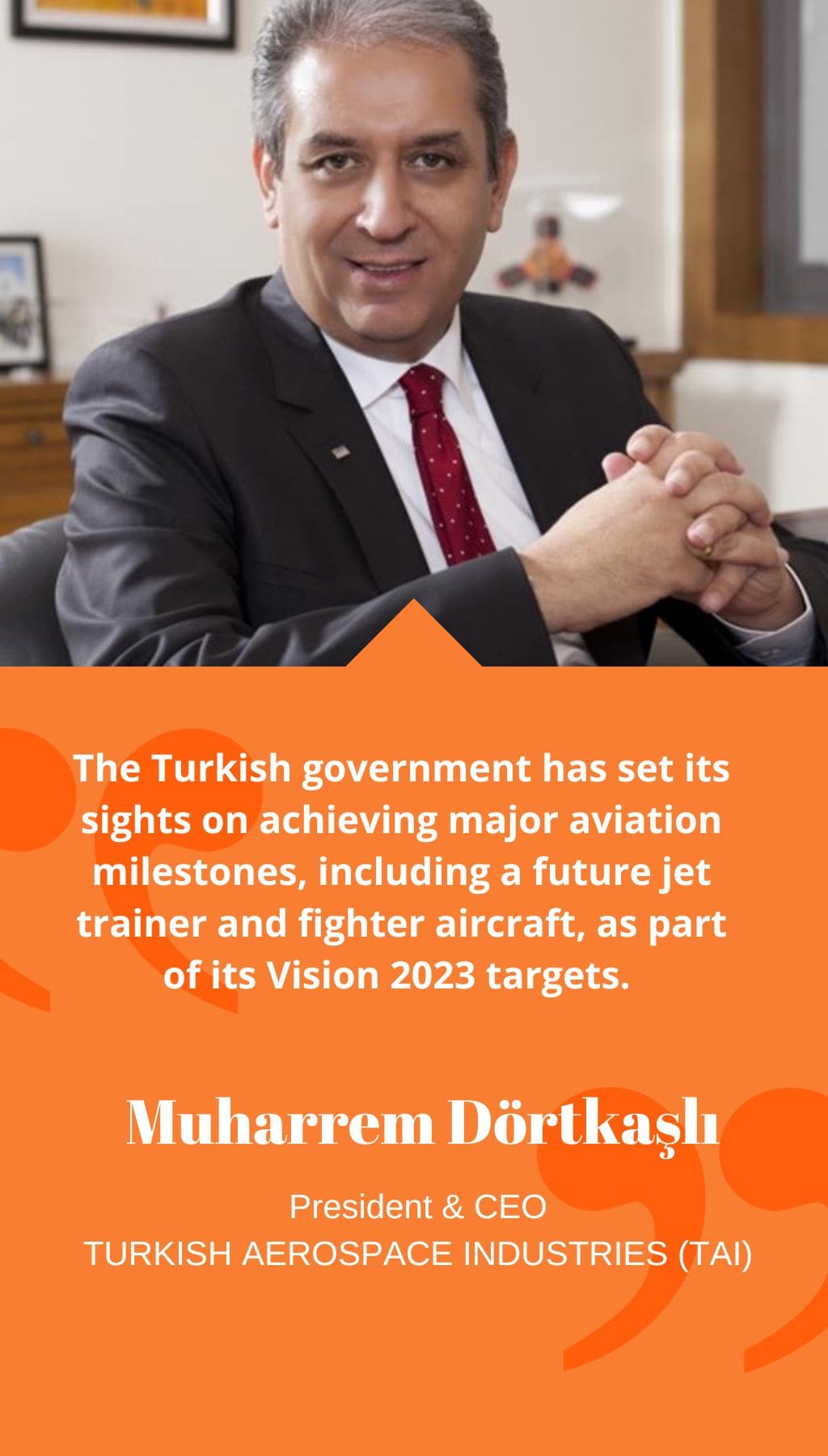
- Turkey | 12 March 2017

Could you introduce Turkish Aerospace Industries Inc. (TAI) and its current services and products?
TAI was established in 1984 as a joint venture company to co-produce the F-16 fighter aircraft for the Turkish Air Force. Since then, we have evolved from a subcontractor into an OEM with extensive capabilities for the design, development, modernization, manufacturing, integration, and life cycle support for integrated aerospace programs. Our portfolio includes fixed and rotary wing platforms, unmanned aerial vehicles, and space systems. TAI participates in international programs as a design, industrial, and/or risk-sharing partner, and is a strategic partner and single source supplier to leading OEMs such as Airbus, Boeing, Bombardier, AgustaWestland, Sikorsky, Northrop Grumman, and Lockheed Martin.
What are some of the major aircraft platforms that TAI is currently working on, with Turkey aiming to develop an indigenous aircraft?
One of our key projects in developing Turkey’s next generation of indigenous aircraft is the HÜRKUŞ program. This project began in 2006 to develop a state-of-the-art trainer aircraft. We are also developing a twin-engine, five-to-six-ton, light utility helicopter and the T129 ATAK helicopter developed under a special collaboration scheme with AgustaWestland. The T129 ATAK is equipped with new engines, avionics, and weapon systems and ten helicopters have been delivered to the Turkish Land Forces.
Could you tell us about TAI’s experience in working with international platform producers, especially with Boeing and Airbus dominating the global aerospace market?
TAI is a sole source supplier for both Airbus and Boeing commercial aircraft programs. We are involved with various narrow- and large-body passenger aircraft including A320, A330, A350XWB, B737, and B787. For Airbus, TAI is in charge of the A320 section 18 and section 19, the A330 rudder components, and is a risk-sharing partner for A350XWB aileron. For Boeing, TAI is responsible for the B787 Dreamliner elevator, cargo barrier, and body seal, and is a sole source manufacturer of B737, B747, B767, and B777 components. TAI is also involved with military platforms such as the A400M, F-35, and S-70, for fixed and rotary-wing platforms.
The Turkish defense industry has seen significant growth in the last decade due to targeted government policies. What can we expect to see as the most significant developments for the industry in the next five years?
The Turkish government has set its sights on achieving major aviation milestones, including a future jet trainer and fighter aircraft, as part of its Vision 2023 targets. The conceptual design phase of the Turkish Fighter Aircraft has been completed, and TAI’s engineering team is working with SSM and the Turkish Air Force for the follow-up phases of the program. Overall, Turkey’s defense and aerospace industry has grown rapidly over the last 10 years, with yearly revenue increasing fourfold and exports increasing by five times. Research and development expenditure has also steadily increased, totaling $887 million by the end of 2014. These figures indicate that Turkey is successfully establishing itself as a global supplier for aerospace and defense products.
TAI is positioned as one of Turkey’s top aerospace and defense companies. What are the company’s plans to improve its position in the global market?
TAI plans to expand its product offerings and portfolio, including development projects such as the FX Fighter Aircraft, Light Utility Helicopter, HÜRKUŞ Primary & Basic Trainer Aircraft, ANKA Unmanned Aerial Vehicle variants, and new communication and observation satellites. By pursuing this two-pronged strategy and enhancing relationships with leading OEMs, TAI aims to become even more competitive. As of 2014, Defense News ranked TAI 78 out of the top 100 players in the aerospace and defense sector worldwide. However, TAI expects to climb further up the list in the coming years. The company is confident that its growth trend will continue, and it will continue to make groundbreaking achievements in the aerospace and defense industry.














